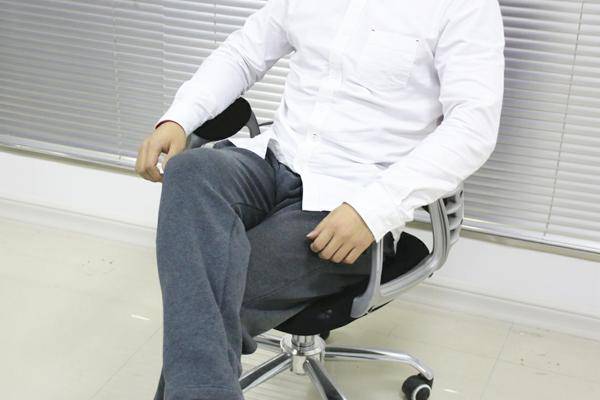The prostate is an important male-specific organ. However, many men face issues related to the prostate, including prostatitis, prostate enlargement, and prostate cancer. Not only does it cause physical discomfort for men, but it also significantly impacts their quality of life. Below, we will introduce three types of men who are more prone to prostate problems and provide preventive measures to help protect men’s health.
1. Which 3 types of men are prone to prostate problems?
– The first type, men who sit for long periods of time
Modern lifestyles lead many men to sit in front of computers or office chairs for prolonged periods. The habit of prolonged sitting can affect male prostate health. When men sit in one position for long periods, it compresses the prostate and impairs blood circulation. This could lead to problems like prostatitis and prostate enlargement.
– The second type, middle-aged and elderly men
Prostate issues are common health problems among middle-aged and elderly men. As age advances, the growth of prostate tissue accelerates. This is why conditions like prostate enlargement and prostate cancer are more common in older men.
– The third type, men with a family history of prostate diseases
Prostate diseases show a clear familial clustering. If there is a history of prostate cancer or prostate enlargement in the family, the individual’s risk of developing these conditions might increase.
2. How to prevent prostate problems?
1. Engage in moderate exercise
Moderate aerobic exercise can promote blood circulation, including in the prostate area. This will help reduce the burden on the prostate and maintain its health. It is recommended to engage in half an hour of moderate-intensity exercise daily, such as jogging, brisk walking, swimming, or cycling.
2. Adjust your diet
Diet also plays a significant role in prostate health. Consuming foods rich in fiber, such as whole-grain bread, cereals, and vegetables, helps maintain gut health. In addition, consuming foods rich in antioxidants like dark-colored vegetables and fruits helps combat oxidative stress, maintaining organ health, including the prostate. A study published in the *Journal of the American Medical Association* linked the intake of lycopene (a compound found in tomatoes) to a reduced risk of prostate cancer. Overall, maintaining a balanced diet, consuming various nutrients, helps maintain overall health, including prostate health.
3. Control alcohol consumption and quit smoking
Excessive alcohol consumption and smoking are linked to prostate problems. Alcohol affects the body’s immune system, making it difficult to fight inflammation and infections. Harmful substances in tobacco can damage cells and tissues, including prostate tissue. Therefore, controlling alcohol consumption and quitting smoking benefits prostate health.
4. Maintain good hygiene habits
Maintaining good hygiene habits helps prevent urinary tract infections and prostate issues like prostatitis. This includes washing hands regularly, avoiding the use of harsh cleaning agents, timely urination, etc. Additionally, using the correct condoms and avoiding risky sexual behaviors can help prevent sexually transmitted infections, including prostatitis.
5. Regular check-ups
Regular check-ups aid in timely detection of prostate issues. Routine check-ups include urine analysis, prostate-specific antigen testing, among other procedures. Prostate-specific antigen is a protein, and when there are prostate issues, the levels of prostate-specific antigen may increase. However, an increase in prostate-specific antigen levels does not necessarily indicate prostate cancer, so further evaluation and treatment based on the doctor’s advice are necessary. If there is a family history or other high-risk factors, it is advisable to begin screening at a younger age.
If any symptoms of prostate issues arise, such as urgency to urinate, frequent urination, difficulty urinating, painful urination, prompt medical attention and professional treatment should be sought. Let us start paying attention to prostate issues now and care for our health!


